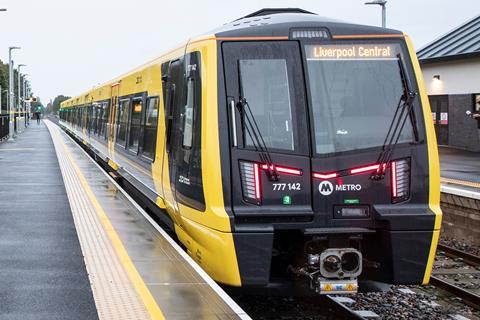
UK: The rail sector has welcomed the outline plans for local politicians to have greater control of passenger rail services which are set out in the government’s white paper on devolution in England, but questions remain about the future scope and structure.
The Ministry of Housing, Communities & Local Government’s white paper published on December 16 says the future Great British Railways ‘will put passengers and local communities back at the heart of the railways and protect their interests’.
There would be a statutory role for mayors in governing, managing, planning and developing the rail network, with GBR to engage with Strategic Authorities to assess how local rail ambitions can be reflected in national planning processes.
The government will consult on this ahead of the legislation to establish GBR. Subject to royal assent, it will publish guidance outlining the core components that each tier of Strategic Authority can expect, ‘reflecting the need for this to be flexible, place-based and bespoke’.
If they meet transparent criteria, mayors will be given the option for greater control over appropriate local stations. The government will also work with Strategic Authorities to explore how the land value potential in rail-owned land could drive regeneration, commercial and housing opportunities.
Established Mayoral Strategic Authorities, the highest level of Strategic Authority, would have the right to request further rail devolution, up to full devolution of defined local services.
GBR will reform the rail ticketing system to make it simpler and facilitate innovation including pay-as-you-go and integration with buses. Priority will be given to established Mayoral Strategic Authorities in city regions with existing ticketing schemes across other transport modes.
Questions remain

Naomi Horton, rail partner at law firm Ashurst, said the white paper offers the prospect of ‘a permanent shift of power away from Whitehall and into the hands of those who know their communities best’, but there are still questions about how much power to cede to local authorities, whether this might be at the expense of uniting the railways under a common brand and set of values, and how funding and responsibility will be allocated.
She said ‘a significant question is just how different this plan will be from the last time local authorities had involvement in passenger rail franchises, back in the days when local PTEs used to be co-signatories to passenger rail franchise agreements’.
Hannah Moxon, Director of External Affairs at Rail Partners, said ‘for devolution to deliver for passengers, metro mayors need appropriate control over rail services, as part of an integrated transport system, to deliver meaningful improvements’.
Rail Partners noted than Transport for London, Merseytravel and Manchester’s Bee Network offer public control under a single brand, but ’behind the scenes, private operators act as delivery agents for buses, trams and trains, to grow usage and reduce subsidy’. It also pointed out that rail freight needs seamless interactions between different regions.
Moxon said ’how GBR interacts with local bodies while running the railway as a national network will be key to ensuring devolution is a success’.
Railway Industry Association CEO Darren Caplan said transport is a key priority for regional leaders, and the commitment to giving English metro mayors a new framework to provide a more co-ordinated and enhanced approach was welcome. He believed that ’Transport for London and the Manchester Bee Network are two examples of strong leadership, delivering integrated transport systems with models which could be rolled out more widely across England’.



